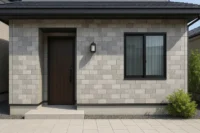Modern & Affordable Home Designs in Nigeria 2025
Published: 3 Jul 2025
Introduction
Home designs in Nigeria are changing fast in 2025, driven by a growing city population, new daily habits and a push for greener living. As more people crowd into cities, they hunt for budget-friendly houses that still look stylish and offer comfort and smart use of space. Whether you are buying your first home, raising kids or looking to invest, these fresh Nigerian designs could suit you perfectly. In this article, we highlight modern, affordable build ideas for 2025, pointing out trend themes, must-have features and real-world tips for making them work in Nigeria.
Why Go for Modern, Affordable Home Designs in Nigeria?
As 2025 rolls around, more Nigerians, especially in busy cities like Lagos, Abuja and Port Harcourt, are on the hunt for stylish, budget-friendly houses. Builders are stepping up with fresh designs that save money, use less energy and tread lightly on the environment. So, why are these modern, affordable homes worth considering?

Cost-Friendly Design
New homes don’t always mean sky-high bills. Smart plans, compact layouts and sensible materials let you build a house that meets your family’s needs without emptying your wallet. Thinner footprints and bulk buys of local goods shave off labor and transport costs. Look for these extras to drive down final prices:
Sustainable Building Materials:
Using sand, timber and craftworkers from the region cuts import fees and supports local jobs.
Energy Efficiency:
Features like LED bulbs, thick walls and shaded windows let appliances run less, so monthly bills stay low.
Long-Term Savings
Today, many Nigerian homes pack in solar panels, rainwater tanks and energy-saving gadgets that trim every utility bill. While the first outlay might talk, those systems soon pay for themselves and protect you from fuel price leaps. In short, modern, wallet-friendly housing gives you a comfy roof and more cash for the things you really care about.
Modern Homes in Nigeria 2025
More Nigerian homeowners are adding rooftop solar panels these days, cutting back on how much they lean on the national power grid.
Houses now catch cool breezes by lining up windows for cross-ventilation, so occupants rarely crank the air conditioner.
In 2025, smart gadgets have moved deeper into Nigerian living spaces.
Smart Security:
Keyless locks, motion detectors and wifi cameras are now almost standard, handing people greater peace of mind at home.
Voice-Controlled Systems:
Virtual assistants keep daily chores on autopilot, linking every room with spoken commands.
Modern Nigerian homes still echo local culture even as they welcome sleek new designs.
Builders mix time-honored materials—clay, stone and hardwood with glass and steel, turning out houses that look sharp and work hard.
Nigerian Craftsmanship:
Locally made furniture, woven baskets and carved art add warm character to every space.
Open Spaces:
Airy floor plans stretch sight lines, so rooms feel larger, friendlier and easier to move through.

Key Features of Modern Nigerian Home Designs in 2025
Nigerian houses are changing fast and by 2025, the average home will focus on comfort, energy saving and good looks without breaking the bank. Here are the main features we expect to see:
Open-Plan Layouts
Open-plan living is set to be a major trend in 2025. Designers will merge the lounge, kitchen and dining room into one big area. This arrangement makes the house feel bigger and encourages family chats and easy entertaining.
Flexible Living Spaces:
Homeowners can move furniture and adjust the layout for anything from quiet study time to weekend parties.
Natural Light:
Huge windows, glass walls and sliding doors pull in plenty of daylight and keep the place feeling fresh.
Compact and Efficient Use of Space
Modern Nigerian homes pride themselves on smart use of every square metre. In 2025, rooms will serve multiple purposes while fitting neatly on smaller city lots.
Built-In Storage:
Features like wall shelves, hidden drawers and storage under stairs stash away clutter without wasting space.
Multi-Functional Rooms:
A room that works harder saves space and money. Picture a home office that quickly becomes a cozy guest bedroom when friends visit.
Sustainable and Eco-Friendly Design
As people around the world worry about the planet, forward-looking Nigerian homes in 2025 will add green features that cut waste and lower bills.
Rainwater Harvesting:
System-wide tanks and gutters will catch every drop, easing pressure on city water lines and keeping gardens green through dry spells.
Energy-Efficient Appliances:
Kitchens and laundries will hum with fridges, washers and cookers that sip, not guzzle, power, putting more cash in owners’ pockets.
Modern Facades with Traditional Elements
Houses will show off a bold mix of clean, modern lines and classic Nigerian touches. Smooth concrete and glass sit beside local stone, timber or even a light thatch roof.
Stone Cladding:
Away from dull paint, contractors will sheath ground floors in rugged stone that sparkles in the sun and hides fingerprints.
Wood Accents:
Soft-caring trim around windows or long louvers will warm the overall look and remind owners that nature is never far from home.
Home Automation and Energy Monitoring
As smart-home gadgets keep getting cheaper and easier to use, more Nigerian families are weaving technology right into their house plans. By 2025, many rooms will come with built-in helpers that manage lights, heat, locks and even appliances with the push of a button.
Home Automation:
Voice speakers and smart thermostats let owners tweak settings from bed or the office, turning normal chores into one-swipe tasks.
Energy Monitoring:
Real-time meters show exactly where power leaks happen, so families can save money and cut waste without guessing.

Popular Home Designs in Nigeria for 2025
Nigerian builders in 2025 are blending sleek modern styles with local culture, leaving clients with homes that look fresh, save resources and tell a story. These are a few styles expected to steal the spotlight:
The Modern Minimalist Design
Perfect for people who love quiet lines and no fuss, this layout swaps heavy walls for wide openings, keeping furnishings and decor light.
Neutral Color Schemes:
Soft whites, warm beiges and gentle greys wrap rooms in calm, letting sunlight and shadow do most of the decorating.
Functionality Over Ornamentation:
Every chair, shelf or table has a job to do and clutter is kept out, so the space feels open and easy to live in.
Contemporary African Fusion
Contemporary African Fusion design mixes modern building materials with classic African style, so each room feels both local and global. By 2025, many Nigerian living rooms and kitchens blend loud prints, rich textures and earthy materials with sleek, straight lines.
Wooden Accents:
Carpenters leave plenty of timber on show, giving every space natural warmth and a hint of hand-crafted charm.
Artisan Details:
Woven baskets, bright cloth and other handmade pieces help each home tell a story, not just look trendy.
Bungalow Style
Bungalow-style houses still win hearts in Nigeria because one-floor plans suit older folk and tiny kids alike. These easy-to-care-for homes give families a roomy yet budget-friendly shelter that hardly ever needs heavy repair.
Simple Layout:
Open-plan living rooms spill straight into kitchens, keeping chores quick and family chats effortless.
Wide Verandas:
Thick roof overhangs and long terraces make perfect shady hang-outs for evening breezes and morning tea.
Eco-Friendly Homes
By 2025, greener thinking slides into most new builds across Nigeria, proving that comfort and care for the planet can walk hand in hand. Extra-thick walls, reclaimed bricks and rainwater tanks cut waste, while smart gadgets and valve toilets trim daily bills.
Solar Panels:
Flat, quiet panels cover many rooftops, turning abundant sunlight into free, silent power for fridges, lights and home gadgets.
Rainwater Harvesting:
More Nigerian households now include rainwater tanks so residents can store fresh rainfall, cut bills and stop relying so heavily on city water.
Luxury Modern Homes
By 2025, upscale houses will grow larger and fancier, packed with sleek finishes and the newest gadgets. Buyers will demand smart controls, private swimming pools and garages that fit three or four vehicles.
Private Amenities:
Many high-end estates will come with theaters, personal gyms and bathrooms that feel like five-star spas.
High-End Materials:
Granite counters, marble floors and designer taps will be everyday upgrades in these luxe builds, giving each room a polished look.
Maximizing Space in Modern Nigerian Homes
Smart layouts and clever storage let busy families enjoy every square meter of their homes. Follow the tips below to brighten and stretch rooms without adding to the construction cost in 2025.
Open-Plan Living
Knocking down a few non-load-bearing walls creates one airy zone for cooking, relaxing and entertaining. Without cramped corridors, even modest plots feel larger and more welcoming.
Clear Zoning:
Place rugs, shelves or hanging lights to mark the lounge, dining area and kitchen so guests know where to go.
Build Furniture That Does More
Pick pieces that pull double-duty, like wall tables that fold down, pull-out sofa beds and hollow ottomans with hidden bins, so every square foot counts.
Store Up, Not Out
Stack your storage upward by adding simple wall shelves, hanging hooks and tall cabinets that tuck toys and tools out of view but within easy reach.
Let the Sun In
Big windows, sliding glass doors or even skylights flood rooms with daylight, trick the eye into thinking the space is wider and give a warm, friendly feel.

FAQs
How much will it cost to build a modern house in Nigeria in 2025?
Prices swing based on design, site and chosen materials, but a typical three-bedroom modern house could sit anywhere between ₦5 million and ₦50 million or even higher.
Can I change the design of my house in Nigeria?
Absolutely, most builders welcome tweaks to walls, finishes and features so your home matches your taste and lifestyle.
What building materials are best in Nigeria?
Concrete, brick, steel and treated timber top the list; each has its perks and the final pick hinges on budget, climate and the style you love.
What simple steps can I take to cut energy costs at home in Nigeria?
Start by installing rooftop solar panels, opting for five-star fridges and LED bulbs, sealing windows with good insulation and adding a smart thermostat.
Conclusion
Nigeria’s housing scene in 2025 blends modern flair, low cost and deep respect for local culture, showing homeowners that style and savings can go hand in hand. Whether you want a plush retreat, a green micro-home or a classic bungalow updated with tech, there is a blueprint to suit your wallet and your taste. By leaning on smart gadgets, recycled materials and skilled local labor, you can build a house that works hard for you and is gentle on the planet. Step into the next era of Nigerian living and craft a home that shows who you are today and who you aim to become tomorrow.





